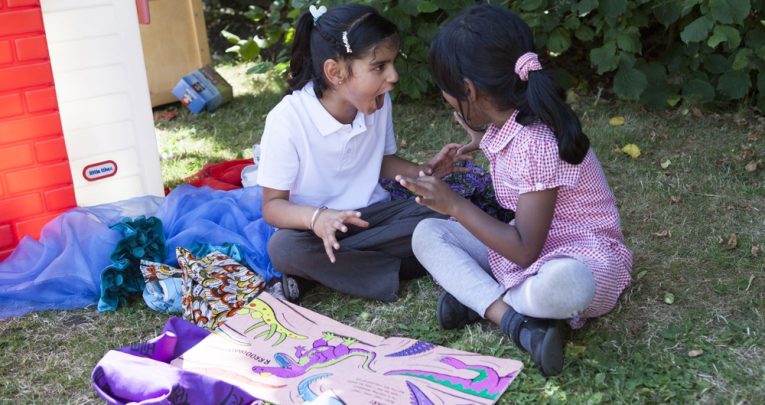Are Children Receiving Enough Specialist Language Support?

Nearly 10 years on from John Bercow's report on the state of speech, language and communication support in schools, work has now begun on a detailed follow-up…

- by Sal McKeown

Back in 2008, the Bercow review [PDF] showed that for children with delayed language or communication difficulties, where they lived dictated the level of support and the range of interventions they were likely to receive. The picture painted at the time was of a piecemeal approach.
A raft of initiatives including following in the wake of the report, including the National Year of Communication (AKA ‘The Hello Campaign’), which in turn prompted events such as No Pens Day Wednesday and the Shine a Light awards, aimed at making children and young people’s communication a priority in homes and schools across the country.
Many felt that the problem was solved. However, as former government communication champion Jean Gross CBE points out, ‘The first Bercow Review did a great deal of good for children, but we need to take stock now of what has been gained and what lost since its publication. I am encouraged by some of the brilliant work I see now in early years’ settings and schools, but very worried about the reductions to the specialist services that support these settings.’
Growing pressures
It’s for this reason that the children’s communication charity I CAN and the Royal College of Speech and Language Therapists have embarked on a new independent review titled ‘Bercow – Ten Years On’, which will examine the current level of provision for children’s speech, language and communication needs (SLCN).
The news comes in the wake of a recent study in the Journal of Child Psychology and Psychiatry, which revealed that 7.58% of all children have a language impairment [PDF]. That means that this September, in a year 1 class of 30 children, there will most likely be at least two children who have a form language impairment – that’s compared to the 1% of children affected by autism and 2% affected by Attention Deficit Hyperactivity Disorder (ADHD).
Since 2008 there have been many changes. including a reformed school system and the wide-ranging alterations to SEN and disability provision set out in the Children and Families Act 2014.
Yet pressures on families have continued to grow. Many working parents are struggling to provide for their children, and are increasingly dependent on food banks. There have been severe cuts to children’s services in many parts of the UK and families are finding that waiting times for speech and language specialist interventions are getting longer.
‘It’s an outrage’
Even through many schools have kept children’s speech and language at the core of what they do, recent changes to the curriculum have caused difficulties in some cases.
Few would disagree that language is the fundamental life skill. It’s the basis of literacy and learning, a key component in making friends and managing behaviour. Yet school staff, particularly at primary level, have to juggle so many conflicting priorities that they can sometimes struggle to properly identify those with difficulties, may not always provide appropriate and timely support for children’s language difficulties.
According to I CAN’s Chief Executive, Bob Reitemeier CBE, ‘It’s an outrage that in some areas of disadvantage, over 50% of children start school with delayed language. We know that language is the absolute fundamental life skill that all children need in order to be independent, to build relationships and to gain employment. It is imperative for our young people and for our country that we act now.’
Bercow – Ten Years On will seek to help schools raise the issue of children’s language, highlight the number of children with SLCN and make a case for why it’s such a crucial issue for schools to address.
It will also aim to provide a picture of services for children with SLCN, while flagging up those services that have developed innovative, effective approaches to ensure better, positive outcomes for children.
Teachers will be able to read about schools that focus on children’s language and find examples of innovative, language-focused curricula where progress in language is linked with increased progress and better outcomes.
Further details regarding the Bercow – Ten Years On review can be found here











